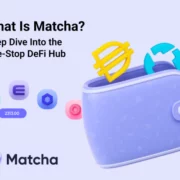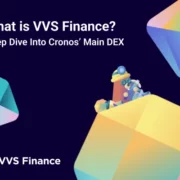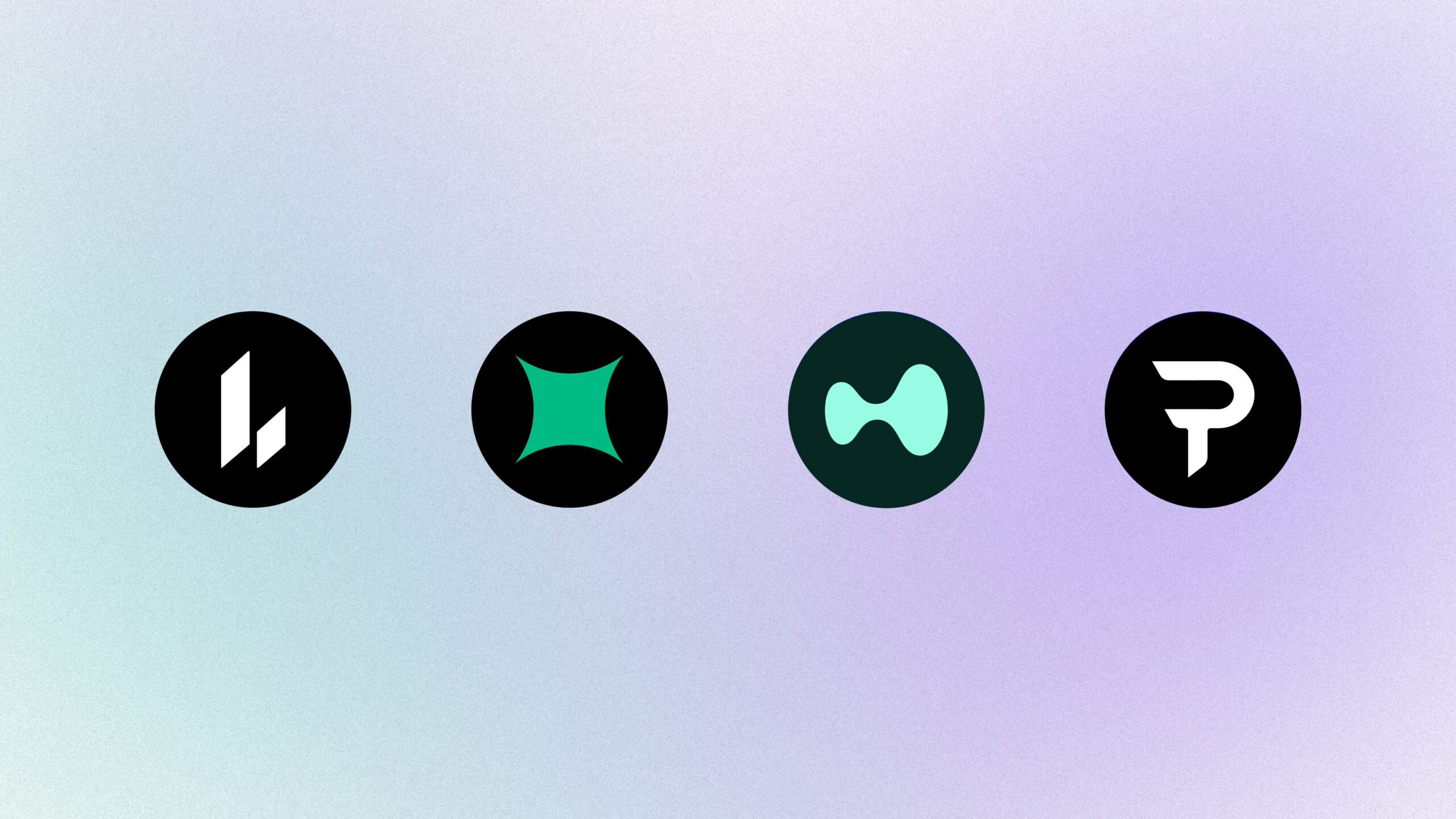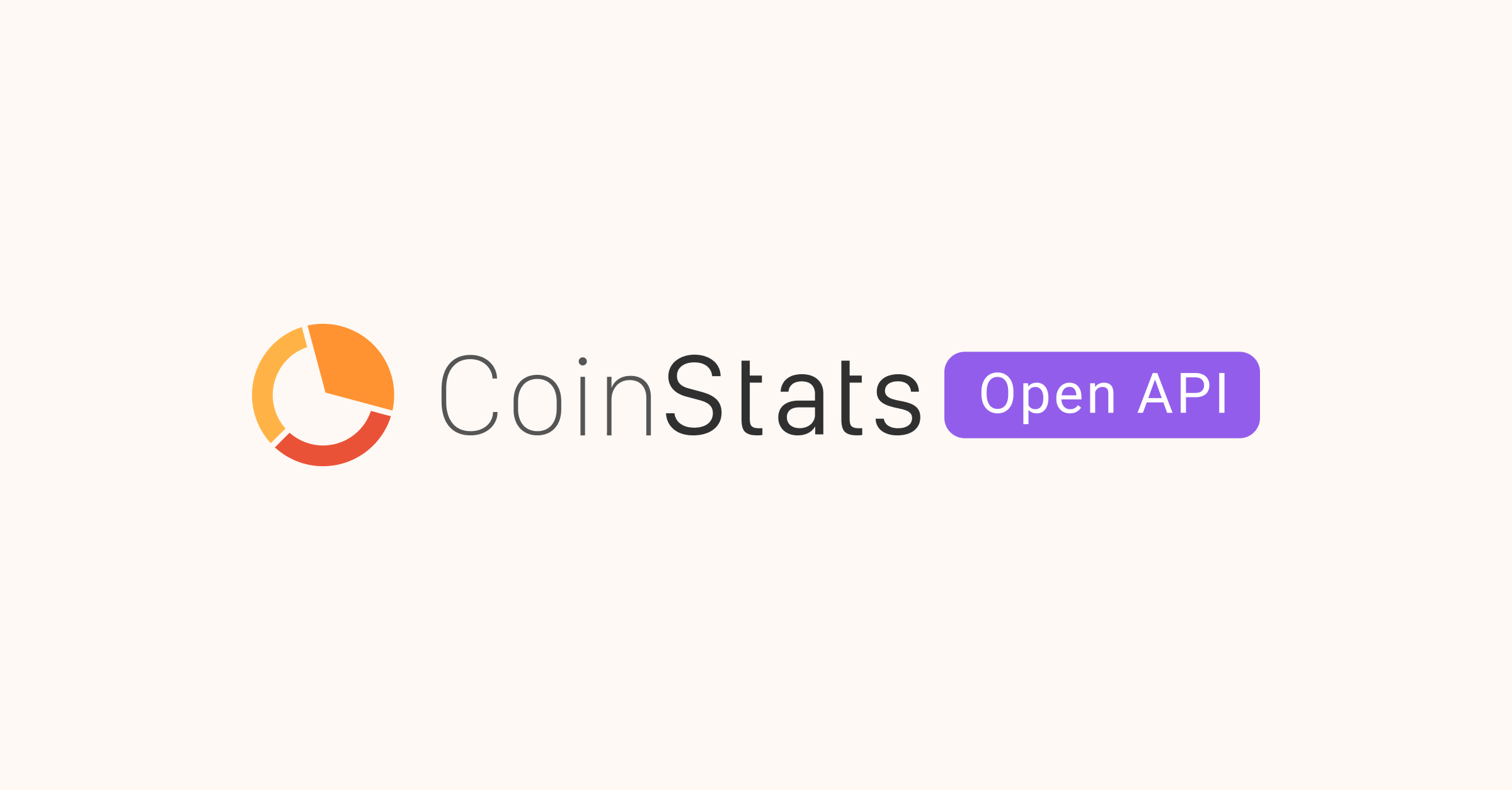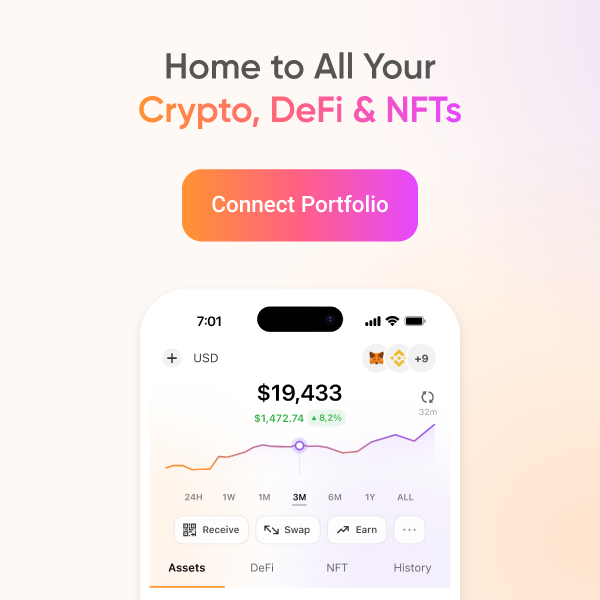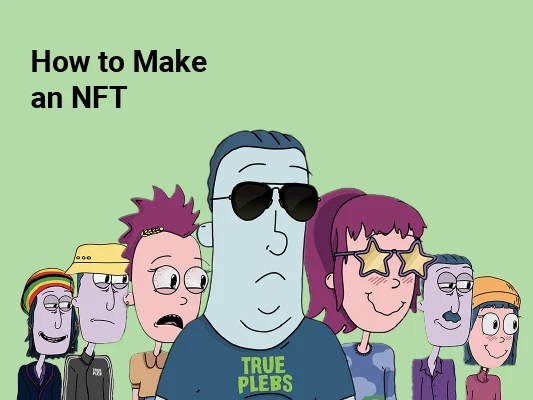
How to Make an NFT [The Ultimate Guide 2023]
Although they’ve been around since 2014, nowadays, people spend millions of dollars on NFT collectibles, from art and music to sports trading cards, digital houses, game items, sneakers, and toilet paper. Have you heard about the iconic GIF of Nyan Cat sold as NFT, the famous NBA Top Shot collection, or Grimes getting millions for NFTs? Read on to get a detailed understanding of what an NFT is and how to make an NFT in a simple and easy-to-follow way.
The market for Non-fungible tokens, or NFTs, was worth $41 billion in 2021, an amount close to the total value of the entire global fine art market.
With the NFT frenzy still at its high, it’s natural if you’re eager to hop on the NFT train and learn how to create NFTs, mint your own NFT, etc., to benefit from the NFT mania.
Fortunately, creating an NFT is not as complicated as you may think, and anyone with the correct tool and basic computing knowledge can create an NFT.
Let’s get started!
What Is an NFT
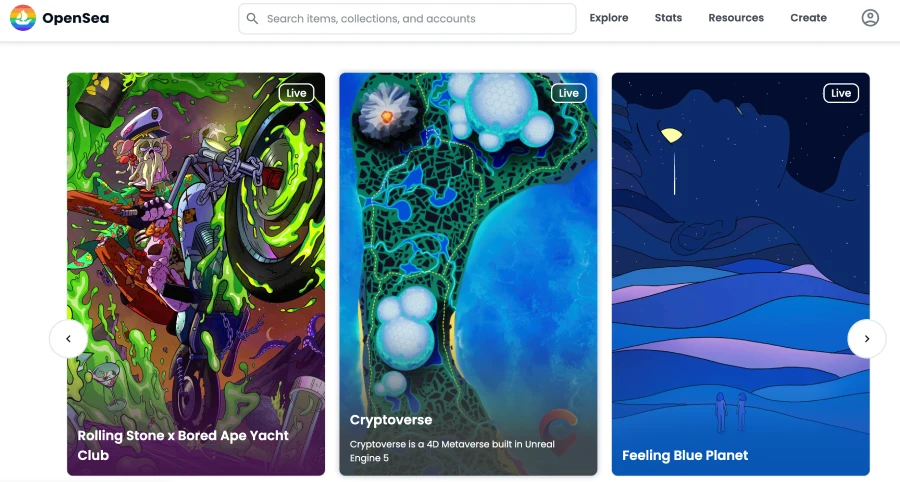
In the crypto space, we distinguish between two types of tokens, namely, Fungible and Non-Fungible tokens (NFTs). Fungible tokens are the ones that can be exchanged for one another, e.g., cryptocurrency tokens such as Bitcoin (BTC), Ethereum (ETH), etc.
A Non-Fungible Token is a token that cannot be exchanged for another and is unique in nature. Non- Fungible tokens, just like cryptocurrency tokens, are verifiable on the blockchain; however, while one BTC is identical to another BTC, one NFT is not identical to another and is a unique asset existing on the blockchain.
A non-fungible token (NFT) is a unique data unit on a blockchain that can be linked to digital and physical objects, such as works of art, real estate, music, avatars, JPEGs, postcards, sports trading cards, or videos, to provide immutable proof of ownership.
NFTs allow individuals to create, buy, and sell digital assets in an easily verifiable way using blockchain technology. Once NFTs have been encoded, they cannot be altered, and their originality and legitimacy are validated through the blockchain.
To understand it better, let’s take the latest craze in the NFT world, the True Plebs NFT collection. It’s a collection of unique 5555 NFTs that represents plebs in the crypto world. So anyone that owns one of those 5555 unique True Plebs NFTs will have their own NFT, which would be different from others, giving them a separate identity.
NFT History
The world’s first NFT, titled “Quantum,” was minted by Kevin McCoy, a digital artist on the Namecoin blockchain, on 3rd May 2014. It was a digital image of an octagon that pulsated and changed colors as an octopus does. This led to further research and development in the world of digital tokens, but not much progress was made until the advent of the Ethereum Blockchain in 2015. Since the Bitcoin blockchain was not designed to be a store of information about ownership of digital assets, Ethereum became the go-to place for NFT enthusiasts.
Most NFTs in existence today are ERC-721 tokens developed in 2018. An NFT is governed by a smart contract that gives the token a unique identity and holds all the information about the NFT’s history, ranging from creation date to its past/current ownership, etc. The data is used to establish the NFT’s ownership, which is stored on a public ledger and is easily verifiable over the blockchain.
Another standard for NFTs is the ERC-1155 standard used to decrease the transaction fee and storage costs associated with NFTs. It helps maintain the unique nature of the NFTs and lets the creators sign their artwork with their own digital signature in the metadata.
One of the first and most popular NFTs was the Cryptokitties NFT collection, with each NFT having its own price in ETH. It was launched on the Ethereum Blockchain in November 2017 and, within a couple of weeks, garnered a fan base that spent around USD 20 million on them. Users could purchase, feed, and nurture those Cryptokitties and even have them reproduce offspring at their own price depending on the parents’ price.
What Can Be Turned Into an NFT

An NFT is a digital asset that can go as high as millions of dollars in value. So, you might be interested in how to make an NFT and sell it in the NFT marketplace.
Any digital asset like digital art, music, digital file, AI art, etc., can be turned into an NFT. Similarly, any real-world asset like real estate or a car can be turned into an NFT.
You must be wondering what the use of real estate or a car NFT is. The answer is simple, suppose you own a car, and you have created a unique NFT that has all the data about its ownership, usage, time of purchase, etc. Now, if you sell that NFT to someone, it means you’re also passing on the ownership of the car to that person. The data about the sale would be stored on the blockchain, and the transaction would occur automatically when the underlying conditions in the smart contract are met. This would connect you directly with the buyer, and you wouldn’t need to pay any commission to middlemen. Similarly, in the case of digital art or any digital file like music, the digital artist who owns the NFT for those digital assets can choose to sell them to any potential buyers without any hassle. This would give the artists much more control over their artwork and help them earn a fair amount of money.
Government-issued ID cards such as passports can also be turned into an NFT. We all must have faced or know someone who has faced many hassles regarding immigration and customs, etc. If the passport is converted into an NFT, it’ll be unique for every individual and will store all the information about them, including travel history, over the blockchain in a digital ledger that would be easily verifiable. This would streamline the entire process and make life easier for everyone involved.
While most of the world thinks an NFT is some useless digital art or digital painting with no value in the real world, it can revolutionize the entire world across different industries and aspects of our day-to-day lives if adopted and utilized appropriately. Anything you can think of can be converted into an NFT, and users can trade NFTs easily without the need for any middlemen.
NFT Boom
The world has witnessed a boom in the NFT marketplace in the last couple of years, and 2021 is known as “The Year of the NFT.” There was a lot of hype and interest in NFTs, and everyone from sports stars to movie celebrities to big business houses and entrepreneurs entered the NFT marketplace, including Grimes, Snoop Dogg, Paris Hilton, Shawn Mendes, Jimmy Fallon, and brands such as Nike, Adidas, Lamborghini, McDonald’s, Burger King, Louis Vuitton, Pepsi, etc. This resulted in a massive demand for NFTs, and the NFT sales skyrocketed. NFT creators were minting NFTs, creating NFT art for a few hundred dollars, and selling the same NFT for thousands of dollars.
One of the largest NFT collections launched during this period was the Bored Ape Yacht Club, a collection of 10000 unique NFTs derived from 172 unique assets. The Bored Ape Yacht Club NFTs were initially listed at USD 0.08 ETH, equivalent to USD 190, but the price of a single NFT in the collection went into millions of USD. Today, the Bored Ape Yacht Club NFTs have made more than USD 1 billion in sales.
How to Create an NFT
Follow our guide below to make your own NFT.
- Select a Blockchain
The first thing to consider is to select a blockchain where you want to create an NFT. While Ethereum is the preferred blockchain for many creators and where most major collections are launched, Ethereum gas fees can be too high for new creators. Other blockchains to create an NFT are Solana, Tron, Polkadot, Binance Smart Chain, etc. The cost of the minting process on these blockchains is relatively low, and some chains like Polygon charge no gas fee for minting.
Let’s look into NFT minting on the Ethereum blockchain.
- Select an NFT Marketplace
The next thing to consider before creating NFTs is the NFT marketplace you wish to use. Many NFT marketplaces allow you to mint an NFT, such as OpenSea, Rarible, Treasureland, BakerySwap, Nifty Gateway, etc. OpenSea and Rarible NFT platforms allow to mint on Ethereum, Solana, and Polygon blockchains, while Treasureland and BakerySwap operate on the Binance Smart Chain.
We’ll be looking into minting an NFT on OpenSea and Rarible, the two largest NFT marketplaces, but the process is somewhat similar across most platforms.
- Select a Crypto Wallet
The final thing to consider before your NFT creation is choosing a cryptocurrency wallet and connecting it to the NFT marketplaces. You can choose from a long list of crypto wallets, but some of the most popular ones are the MetaMask Wallet and the Coinbase wallet. MetaMask is a decentralized digital wallet, whereas the Coinbase wallet is a centralized digital wallet.
We’ll choose the MetaMask crypto wallet as an example. The MetaMask wallet app can be downloaded for mobile phones, or you can add it as a web extension for your browsers. Once downloaded, the extension will be shown in the upper right-hand corner of your browser.
You need to create an account on MetaMask to proceed. Once you’ve entered your username, you’ll be required to set a password for your account. After setting up a password, you’ll get a seed phrase which you should note down and securely store as it’s the only thing that’ll help you recover your account if you forget the password to your digital wallet.
- Deposit Ethereum
Since we’re minting our new NFT on Ethereum, you need to deposit some Ethereum into your MetaMask Wallet. MetaMask allows you to send ETH directly to your wallet from other wallets or buy ETH directly using bank cards and other payment methods depending upon your location. We recommend buying about USD 200 worth of ETH to be able to mint an NFT successfully. Once you have sufficient ETH in your wallet, you can connect it to the NFT marketplace and start minting your own NFTs.
Decide What NFT You Want To Make
Not every one of us is a designer or an artist, and just like traditional art business, NFTs also require a certain level of expertise as a digital artist. So when deciding to make an NFT, you need to first zero in on what you want to turn into an NFT as it would determine how you are to proceed. This is important because not every NFT can find buyers online, so it is important that you choose something that might attract attention and potential buyers. If it is your personal artwork, photograph, music, video, gif, etc. that you want to make an NFT out of, then you can simply follow the steps given below about how to mint an NFT. But if you do not have anything that you can turn into an NFT, then the process is a bit different as detailed below.
Single NFT Or A Collection
Once you’ve decided on what is it that you want to turn into an NFT, the next step is to decide whether you want to create a single NFT or to create a whole collection. Suppose you wish to create an entire collection of exclusive NFTs for prospective buyers and do not have the time or the technical skills to do so, then follow the following steps:
- Decide A Name For The Collection
The first step would be to zero in on a name for your collection that you feel would connect with buyers and make sure that it gives them a feeling of uniqueness and exclusivity.
- Setup A Website, Social Media, Discord, etc.
The next thing you would need to do is to set up a website for your collection and make social media pages on Twitter, Facebook, Instagram, Discord, Reddit, etc. This is important for your collection because merely creating it and listing it for sale might not attract users towards it. You will need to promote your collection on social media and across various platforms. If you are someone that is familiar with creating a website and handling social media promotions, then you can do those yourself. But in case you aren’t, then fret not, you can always outsource your work to freelancers through different freelancing platforms such as Fiverr, Upwork, etc. These places provide reliable, efficient, and trustworthy freelancers that would handle these things for you. They will set up your website, handle social media, and even shill your project in the NFT space so that there is hype generated for it. It is very important to create loyal communities for your NFT project before launch, as this would attract more customers and raise the prices of your collection upon launch.
- Hire Designers/Artists
Just like you have hired people to handle the website and social media promotions, you can also hire designers, and digital artists, either locally or through the same freelancing platforms who will create different artworks for your NFT collection depending on your choice. Once you’ve done that, you can simply mint the NFTs yourself as detailed below or outsource the job as before.
Voila! You’re all set to start making NFTs and selling your NFT collection online to people across the globe and become a part of the revolution.
Creating an NFT image on OpenSea
OpenSea is one of the largest NFT marketplaces for buying and selling NFTs, and NFT creation on its platform is pretty straightforward. You can also check How to Mint an NFT for more details. The following steps will guide you in connecting your MetaMask wallet to OpenSea:
- Go to OpenSea and click on the Wallet sign at the upper right-hand corner of the page.
- Select MetaMask from the list of Wallets.
- The MetaMask plugin would open a notification requiring you to give permission to sign in on OpenSea. Click on it.
- Accept the Terms and Conditions.
- OpenSea requires you to authenticate your account using an email address and a username. A verification email will be sent to your email address; click on the link and verify your account.
- Create an NFT
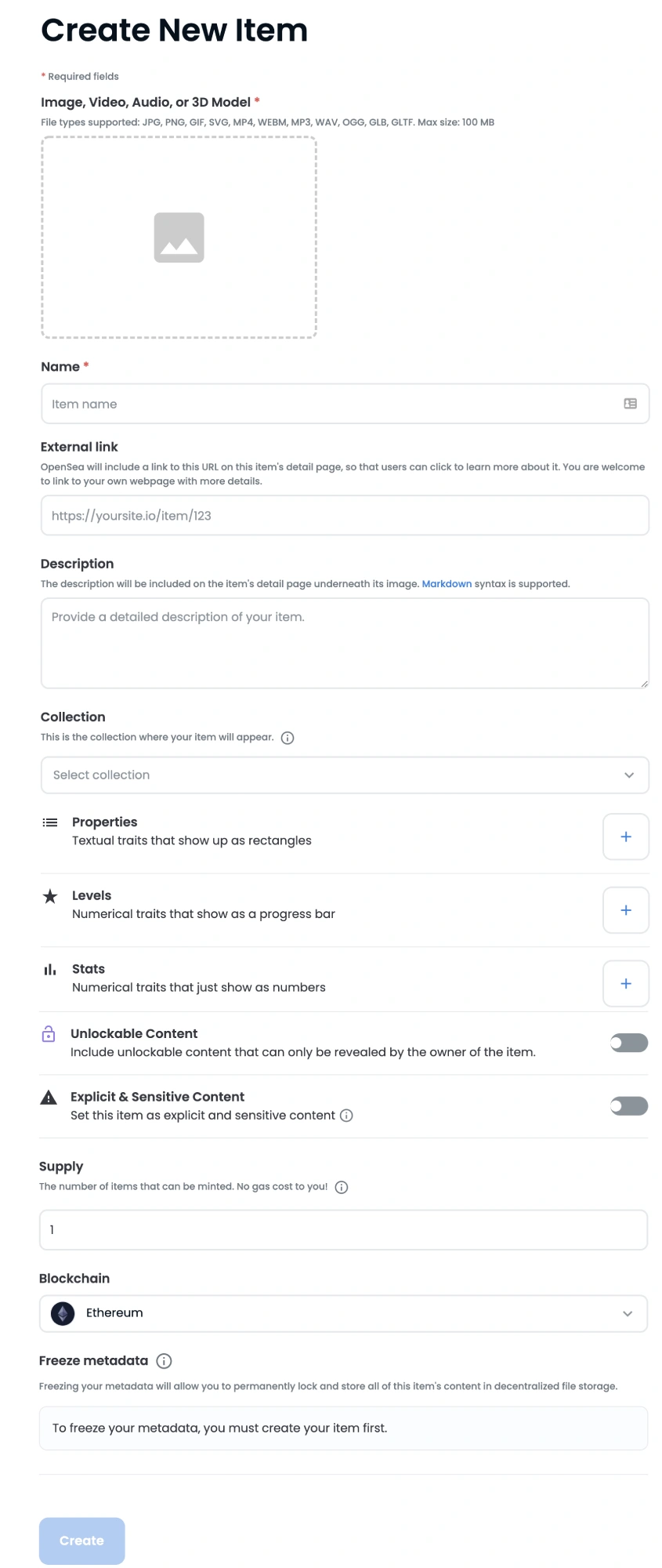
The next step in NFT minting on OpenSea is to click on “Create” and follow these steps to mint your own NFTs:
- Upload the image, audio, video, 3D model, etc.
- Give it a name.
- Write a short description of your NFT.
- Choose to mint it as a standalone NFT or create a collection to which you can add more NFTs later.
- Adjust the supply of the NFT.
- Select the blockchain “Ethereum.”
- And finally, click on the “Create” button at the bottom. Your NFT minting should start immediately after you agree to pay the gas fee from your wallet.
OpenSea also allows users to perform lazy minting, where creators don’t have to pay any gas fees for the minting; instead, they’ll only be charged when the NFT is sold.
After you’ve created your own NFT, you can then choose to sell it. You can list to sell NFTs for a minimum price in ETH and keep it open to bids for a specific time limit.
Creating an NFT Image on Rarible
Rarible is another popular marketplace where people can buy, sell, and create NFTs. Here are the steps for creating an NFT on Rarible:
- Go to Rarible and connect your MetaMask Wallet to it.
- Upon authentication, your wallet will be successfully connected.
- Click on Create and choose the Ethereum Blockchain.
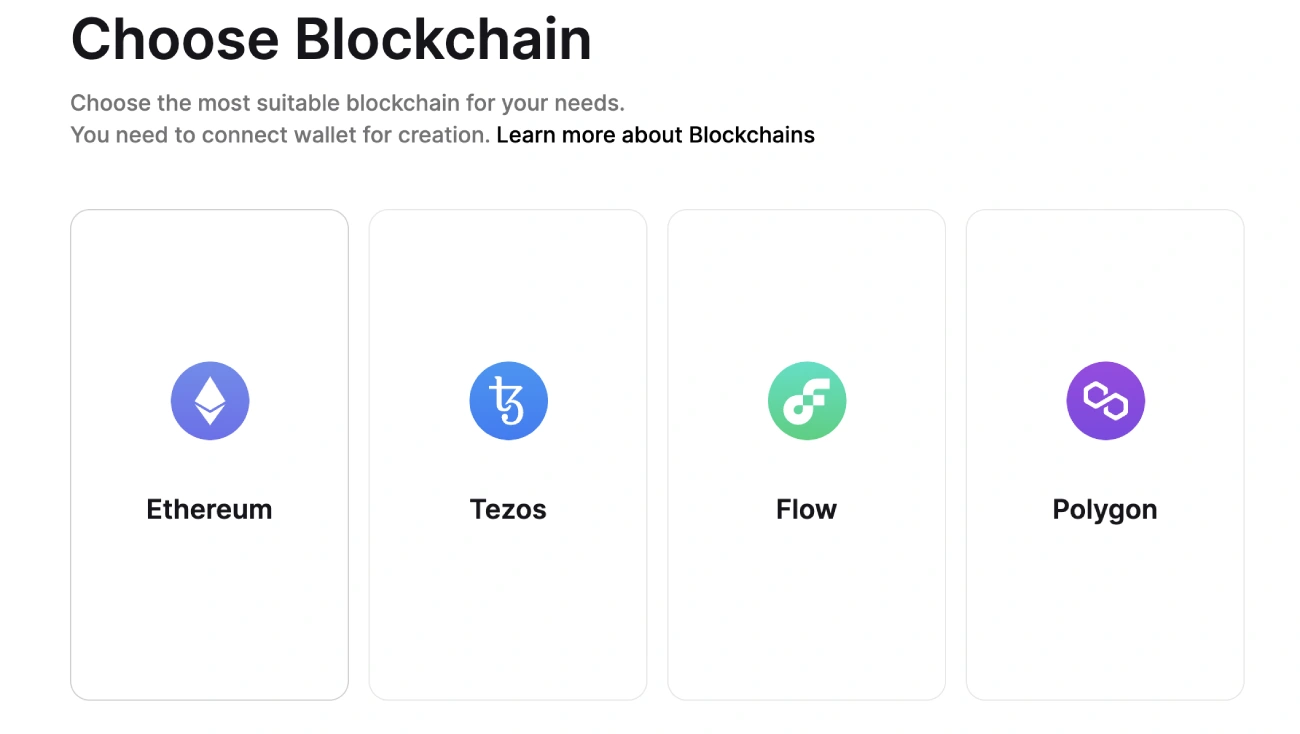
- Choose the NFT type that you want to upload.
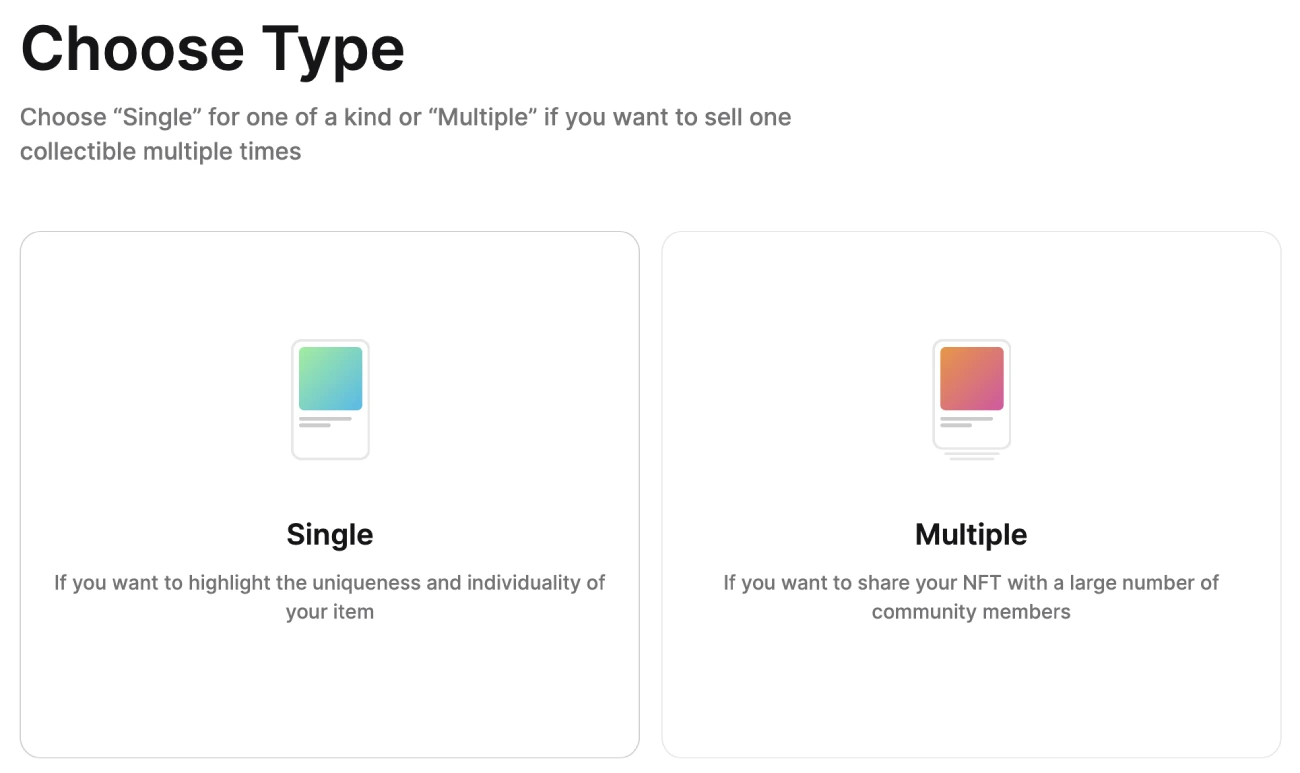
- Upload the file, image, gif, audio, video, etc., to create as an NFT.
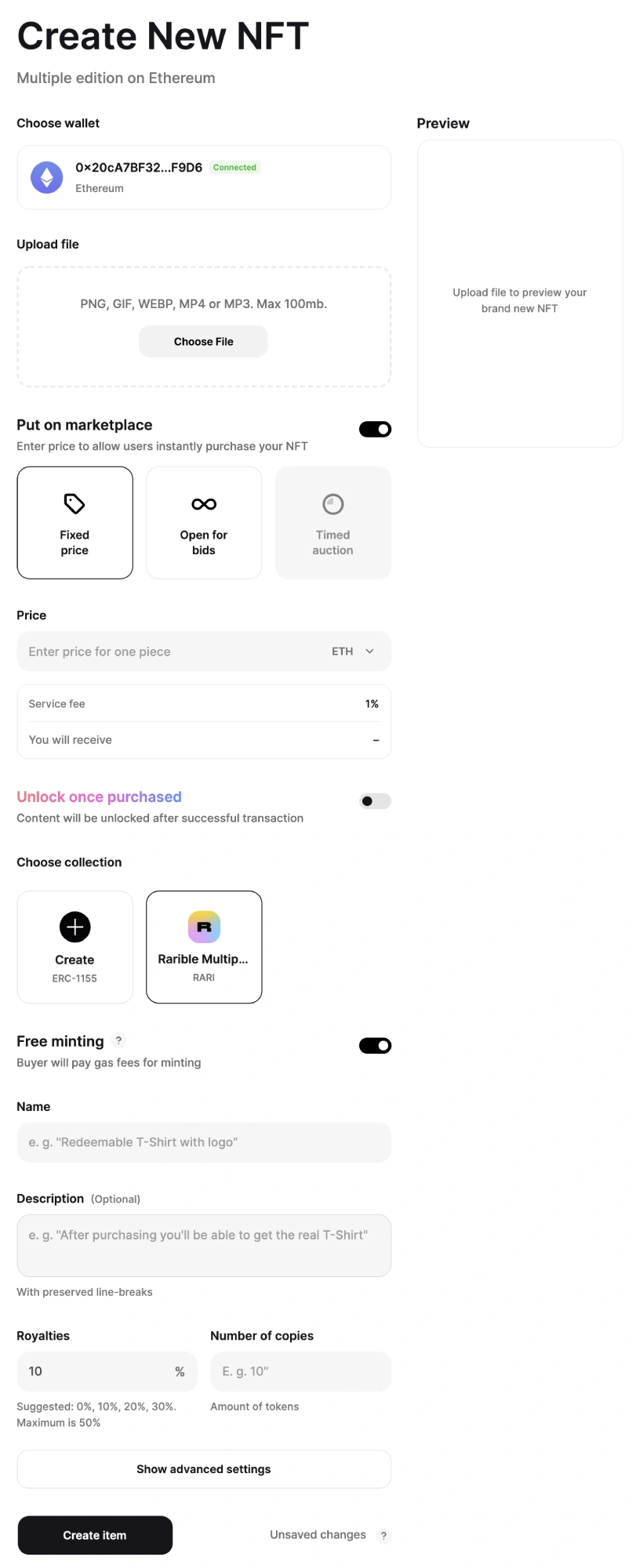
- Select whether you want to sell it for “Fixed Price,” “Open for Bids,” or “Timed Auction.” You set a minimum price in the timed auction and leave it open for future bids. If you click on fixed price, you need to enter the amount in ETH you wish to sell your NFT for.
- Select whether you want your NFT to be an ERC-721 token or a RARI token.
- Select the button for free minting, meaning the buyer will pay the gas fees. You can turn this button off and pay the gas fees yourself as well.
- Enter details such as name, description, etc., for your NFT.
- Enter the number of royalties you wish to receive for your NFT.
- Click on Create Item, and your NFT should be minted in a few minutes.
Congratulations, you’ve created your first NFT on Rarible, and it’s ready to sell!
Conclusion
As our NFT creation guide has demonstrated, anyone can easily mint NFTs and list them for sale. However, the NFT value is mainly based on hype and can be very volatile, so do your research before buying or selling any NFT.
Minting and listing your NFT is just the first step – getting it noticed is another challenge. Some creators leverage NFT SEO services and social media marketing to boost their collection’s visibility. However, keep in mind that an NFT’s value is mostly driven by genuine hype and demand, so always do your research before buying or selling.
You can learn more about NFTs by checking out How to Invest In NFT and How to buy an NFT.
You can also visit our CoinStats blog to learn more about wallets, cryptocurrency exchanges, portfolio trackers, tokens, etc., and explore our in-depth guides on various topics such as What Are Blockchain Layers and How Do They Work, What Is DeFi, How to Buy Cryptocurrency, etc.
